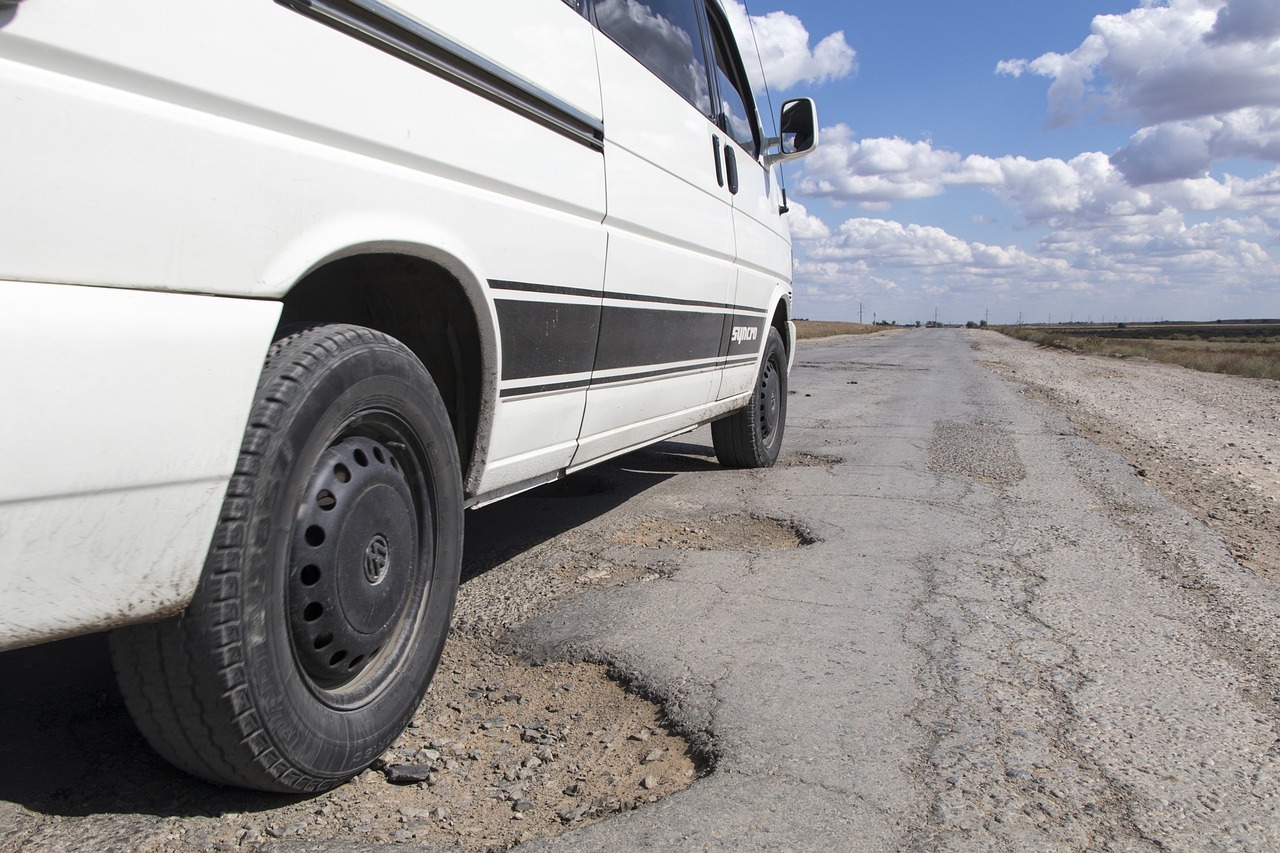Reflection for the Second Sunday in Advent C
Readings: Baruch 5: 1-9 (RM) or Malachi 3: 1-4 (RCL); Psalm 126 (RM) or Luke 1: 68-79 (RCL); Philippians 1:4-6, 8-11 (RM) or 3-11 (RCL); Luke 3: 1-6.
Close your eyes for a moment and think of the biggest, deepest, most unexpected, heart-pounding pothole you have ever driven over … or around … or into.
My candidate for worst pothole came up unexpectedly on a highway in post-Soviet Lithuania. Fortunately my friend who was driving could swerve quickly around the massive pit that suddenly appeared in our lane. It could have swallowed most of the car.
The Canadian Automobile Association used to run an annual contest for members to submit photos of potholes from which Canada’s Worst Pothole of the Year, or some such title, would be selected. (Why were they usually found in Ontario?)
We tend to assume that potholes will be fixed, or at least patched pending re-paving the road, maybe after a call to the local highway department. In the First Reading in the RM for this Sunday the author of Baruch declares,
“God has commanded that every lofty mountain be made low, and that the age-old depths and gorges be filled to level ground…”
This was a visionary statement, really an ideal, a utopia. When Luke quotes the prophet Isaiah in our Gospel,
“Every valley shall be filled and every mountain and hill shall be made low, and the crooked shall be made straight and the rough ways made smooth…”
the intention was much the same. But the vision here is not one of improved transportation infrastructure, but rather an analogy to what needs to happen before the justice promised by our God can be realized on this earth.
Advent resonates with the promise of justice for whoever is oppressed, persecuted, or disadvantaged in any way. The hope it engenders rings as true now as it did for our ancestors in faith. Then, as now, God’s promise hinges on human effort, yet does not emerge as a result of that effort. All our efforts might turn out to be in vain. In the end, justice is a gift of God. The promised coming of God in our flesh, on our earth, is the coming of justice, for persons and for all of creation.
Did it ever strike you as ironic that precisely in the run-up to Christmas — in which peoples’ schedules are often overloaded with shopping, decorating, baking, entertaining, travelling, organizing, rehearsing and attending social, religious and artistic events — we are most likely to invest a good deal of time, work and monetary contributions in Christmastime charity projects? Hot holiday meals for unhoused persons, all-out efforts to amass donations to food banks for food-insecure families, drives to collect toys and winter coats for children, gift cards or warm socks for indigent families. All good work, all necessary work.
And yet there’s something not quite right here, or more precisely, there’s something incomplete. Next Christmas, in all likelihood, the needs will still be there, and the same projects will resume. Good-hearted people will plunge into fine charity work once again, next year, and the year after, and the year after that. If the systemic barriers to making justice are not addressed, little will change.
Maybe we’re driving full speed down the road of charity, ignoring the potholes. The potholes will not fix themselves, and neither will the conditions that perpetuate poverty: legislation that favours the wealthy, social structures that tamp down hope for a better future, or economic circumstances that never improve, for a start.
And this is the difference between charity and social justice. Charity fits beautifully with the spirit of Christmas because the work can result in a warm personal sense of reward, the satisfaction of meeting real needs for real people. Social justice work means we’re in it for the long haul, and we may never hear a “thank you” from those who stand to benefit. Both are needed. The question is not either-or, but of complementary work to bring in the kindom of God, the reign of justice.
Let’s stop for a moment and take another look at the vision laid out in our readings for this Second Sunday of Advent. Don’t miss the stunning beauty in the Baruch reading:
“Jerusalem, take off your robe of mourning and misery; put on the splendour of glory from God forever: wrapped in the cloak of justice from God … For God will show all the earth your splendour…”
This breathtaking promise is made not just to one people, but to all: as Isaiah proclaims,
“The rough ways shall be made smooth… and all flesh shall see the salvation of God.”
© Susan K. Roll
*An earlier version of this Reflection appeared on godswordmanyvoices.org for Dec. 5, 2021.
Susan Roll retired from the Faculty of Theology at Saint Paul University, Ottawa, in 2018, where she served as Director of the Sophia Research Centre. Her research and publications are centred in the fields of liturgy, sacraments, and feminist theology. She holds a Ph.D. from the Catholic University of Leuven (Louvain), Belgium, and has been involved with international academic societies in liturgy and theology, as well as university chaplaincy, Indigenous ministry and church reform projects.




